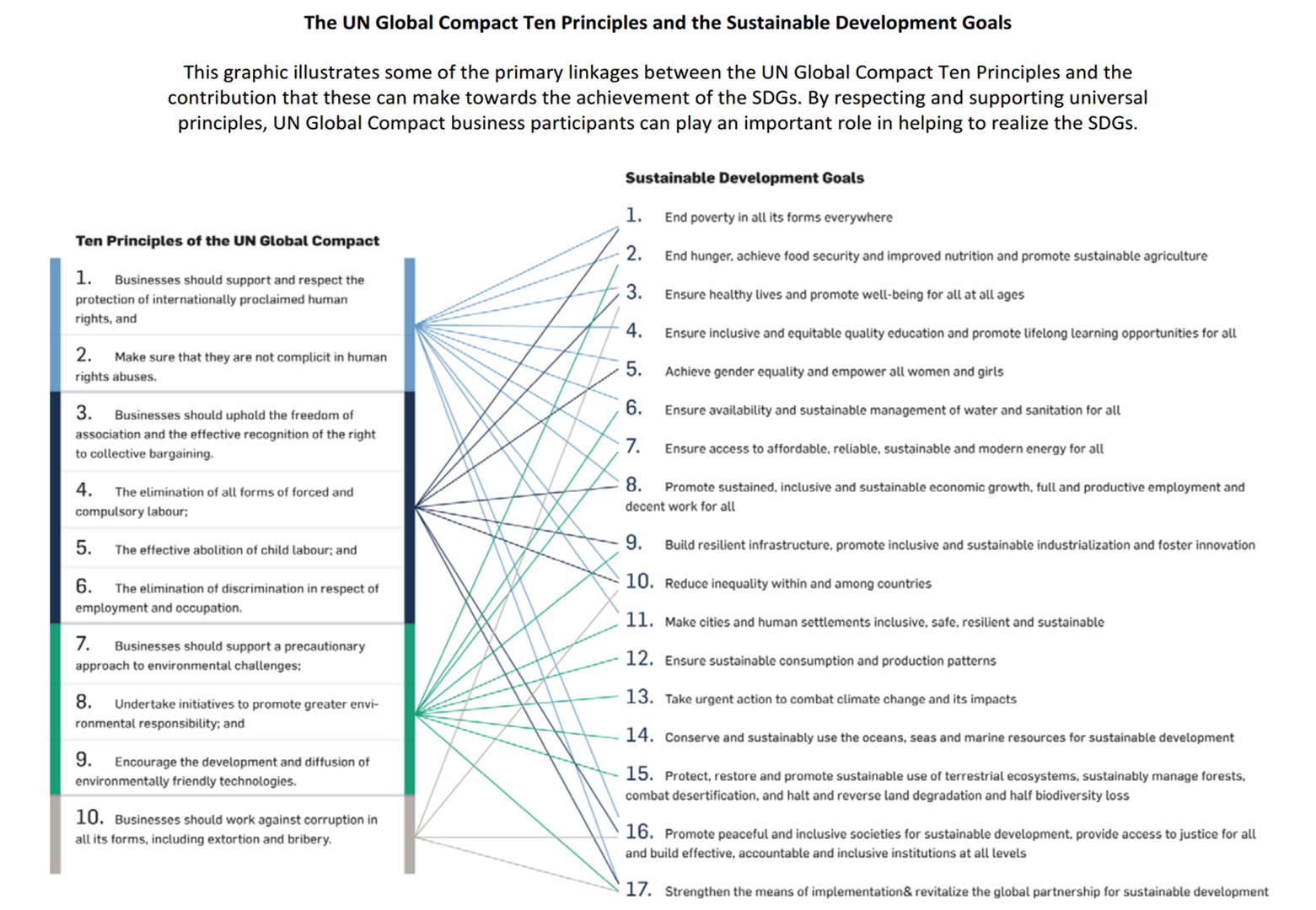
News, Sustainable Development Goals
The importance of responsible business as a foundation for private sector contribution to the SDGs
UN Global Compact Network Australia | June 30, 2016
The UN Global Compact’s new White Paper illustrates the connections between the initiative’s ten core sustainability principles and the Sustainable Development Goals (SDGs), and how together they offer a guide to responsible business to ensure long-term sustainability and business success.
Undoubtedly, the SDGs offer a blueprint for business opportunity. The global challenges they represent – ranging from climate, water and food crises, to poverty, conflict and inequality – are in need of solutions that the private sector can deliver, representing a large and growing market for business innovation.
However, there is emerging concern that unless business action in relation to the SDGs is underpinned by principles, companies will, in the words of Professor John Ruggie, author of the UN Guiding Principles on Business and Human Rights, be “…quick to jump to promotional initiatives, skipping the essential starting point of reducing negative impacts on people associated with their own activities and value chains”.
That is, neglecting the responsibilities attached to social and environmental principles cannot be offset by any effort to promote these same principles. First, companies must operate responsibly, and then pursue opportunities to solve societal challenges through business innovation and collaboration.
In short, companies must not make the world’s problems worse before they try to make them better.
So, the UN Global Compact’s ten core sustainability principles are the foundation for any company seeking to advance the SDGs. Companies must, for example, respect human rights, work against bribery and corruption, and implement the ‘better safe than sorry’ precautionary environment principle.
There are, though, significant links between the UN Global Compact’s ten core sustainability principles and the SDGs – and an opportunity for businesses to link their responsible business efforts with the broader sustainable development agenda.
Where companies focus resources on reducing the risks to people’s human rights along their value chains, they not only reduce harm but also help advance development. Workers and communities are better equipped to claim their rights; living wages support families and enable the education of children; communities that are engaged as partners and provided due process and compensation for impacts on their land and resources are better able to sustain and direct their own livelihoods; women and girls free of sexual harassment and discrimination can reach their economic potential, and so forth.
Professor John Ruggie, Author of the UN Guiding Principles on Business and Human Rights
As illustrated below, adherence to the UN Global Compact’s principles will contribute to realising a wide range of societal and environmental issues covered by the SDGs.
There are also many links between the SDGs and the UN Global Compact’s specific issue platforms and workstreams which elaborate the initiative’s core principles – including the Women’s Empowerment Principles, Children’s Rights and Business Principles, Food and Agriculture Business Principles, Business for Peace, Caring for Climate and the CEO Water Mandate.
The SDGs represent a significant opportunity for the UN Global Compact and its participant businesses, and the private sector will be critical to achieving the goals. By focusing first on getting the fundamentals right – implementing the UN Global Compact’s core sustainability principles – and then exploring opportunities for positive contributions to the SDGs, companies can uphold their basic responsibilities to people and planet and set the stage for long-term success.

Download the White Paper to read more [PDF]


